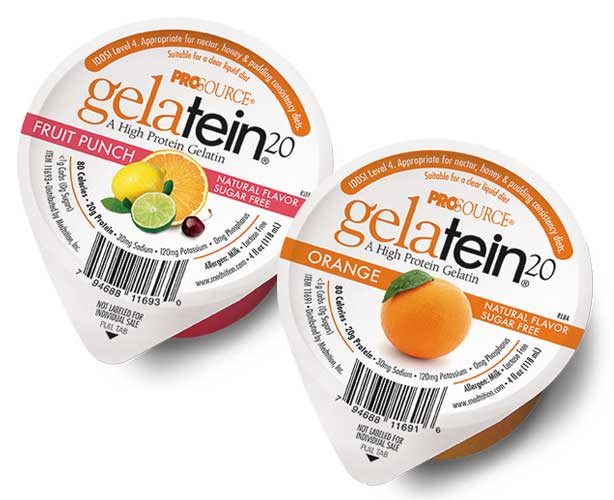Please choose a body region on the right for you to pin point the problem area of your body.

Shop by Condition

Shop by Brand
Getting the proper nutrition after post-bariatric surgery or post surgery is essential to recovery. Your gastrointestinal tract is struggling to get back to normal and may need time to readjust. This is particularly important after having a stressful experience that included anesthesia and various medicines running through your system.
Check with your physician to incorporate a post surgery diet that works for you. Understanding and sensibly approaching your digestion during this time just might save you unnecessary discomfort.
 Post-Bariatric Surgery: Your Stomach is Smaller
Post-Bariatric Surgery: Your Stomach is SmallerWhether your post-bariatric surgery was mandatory or elected, your stomach is now smaller. There will be some guidelines of foods to avoid and those that can enhance your nutrition but supplementation, especially during the first month after surgery, will be vital.
According to the study, ‘Nutritional Deficiencies in Obesity and After Bariatric Surgery’ by researchers from the Cincinnati Children’s Hospital, “Bariatric surgery can lead to several predictable nutritional deficiencies and can worsen pre-existing ones. It is critical to screen for nutritional deficiencies in obese patients prior to bariatric surgery and at regular intervals after bariatric surgery, and encourage adherence to supplementation.”
There are various guidelines your doctor may prescribe to keep your post-bariatric surgery nutrition in check. Some of these may include:
It is important to follow a doctor approved post-bariatric surgery diet for optimal digestion and absorption of immune supporting nutrients at a time your body will need it most. It is also important to avoid refined sugars, dairy, and chemical laden processed foods which could significantly impede your progress.
Any surgery is traumatic for the body. Building up your strength and reinforcing your immune system with a proper post surgery diet should be a top priority. Starting off slow is important so after any procedure don’t tax your body with difficult to digest foods. As long as there is no objection from your physician, some of these post surgery diet tips may help.
As reported by Livestrong, The American Cancer Society and The Hospital for Special Surgery recommends drinking plenty of water to help flush out surgery medicine residue. It was shown that, “proper hydration is essential for healing and even more fluid may be necessary depending on the type of medication an individual is prescribed.”
As in post-bariatric surgery, good levels of amino acids found in protein can help advance healing and tissue regeneration. This includes lean meats, fishes, tofu, legumes, nuts and various protein drinks like sugar-free Pro-Stat Liquid Protein or ProSource Gelatein .
Sugar from complex carbs such as whole grains, fruits, vegetables and legumes help feed the brain while keeping your GI tract regular. This is particularly important as some medicines could make you feel sluggish.
Keeping up your energy post surgery can be challenging. Good fats like avocado, extra virgin olive oil, nuts and seeds may help give you a boost beyond poor fat choices.
Vitamins A and C have been linked to wound healing; Vitamin D helps support your bones; Vitamin E assists free radical reduction; and Vitamin K helps blood clotting. Look for a good immunonutrition drink like Impact Advanced Recovery and incorporate citrus fruits, dark green leafy vegetables and fortified cereals for a good supplement protocol.
Minerals can also keep your healing on a good track. Try small amounts of zinc and iron supplements and look for foods high in these such as fish, poultry, eggs, legumes, raisins and apricots.
Nutrition post-bariatric surgery and post surgery is an opportunity to reset your food and supplement intake for more optimal health. By choosing a diet high in clean, unprocessed foods and eventually incorporating these with a good physical activity regiment, your surgery recovery and future health just may be significantly improved.
Sources:
https://www.ncbi.nlm.nih.gov/pmc/articles/PMC2784422/
https://medlineplus.gov/ency/patientinstructions/000173.htm
https://academic.oup.com/jcem/article/95/11/4823/2835116/Endocrine-and-Nutritional-Management-of-the-Post
https://nutritionj.biomedcentral.com/articles/10.1186/1475-2891-2-18
http://www.livestrong.com/article/107445-foods-after-surgery/
For your reference, the weight loss surgery, also referred as bariatric surgery does include different options such as gastric bypass surgery, gastric sleeve surgery, or lap band surgery.
| Stay Connected! |
Related Articles
Get $10 off your next order when you sign up to receive our email newsletter.*
Simply enter your email address below!
*Minimum order value of $100. Valid email address to qualify.








